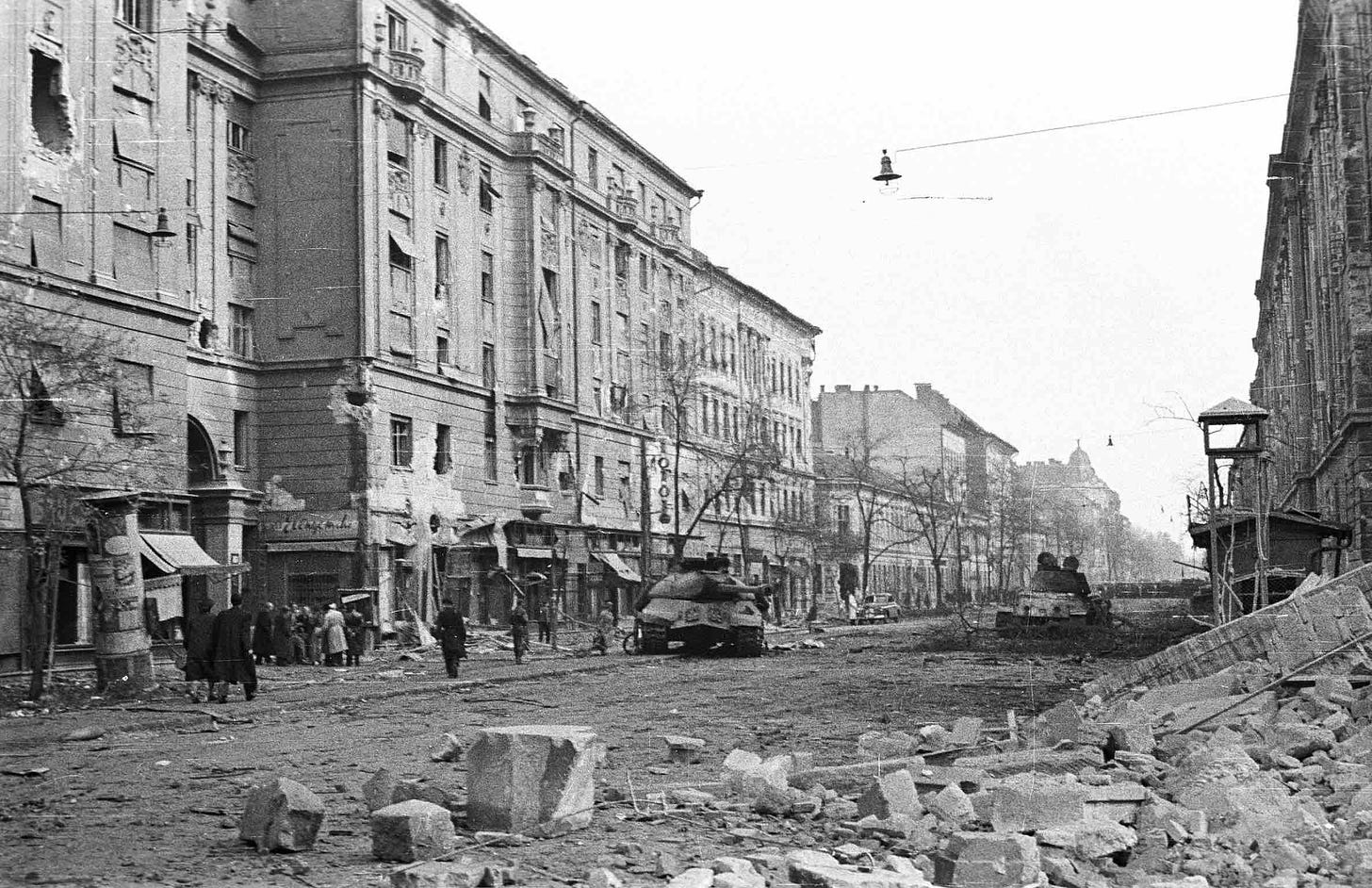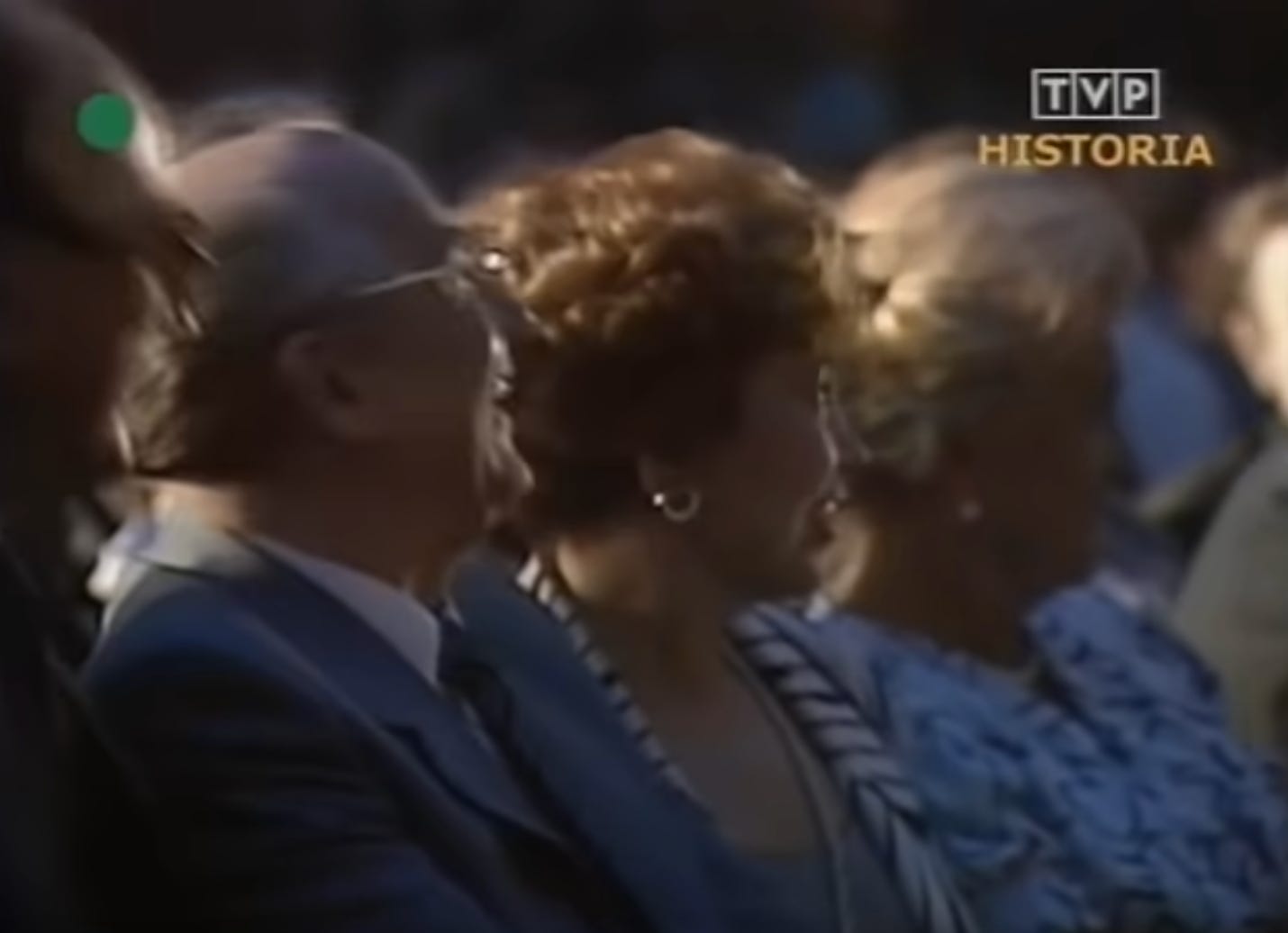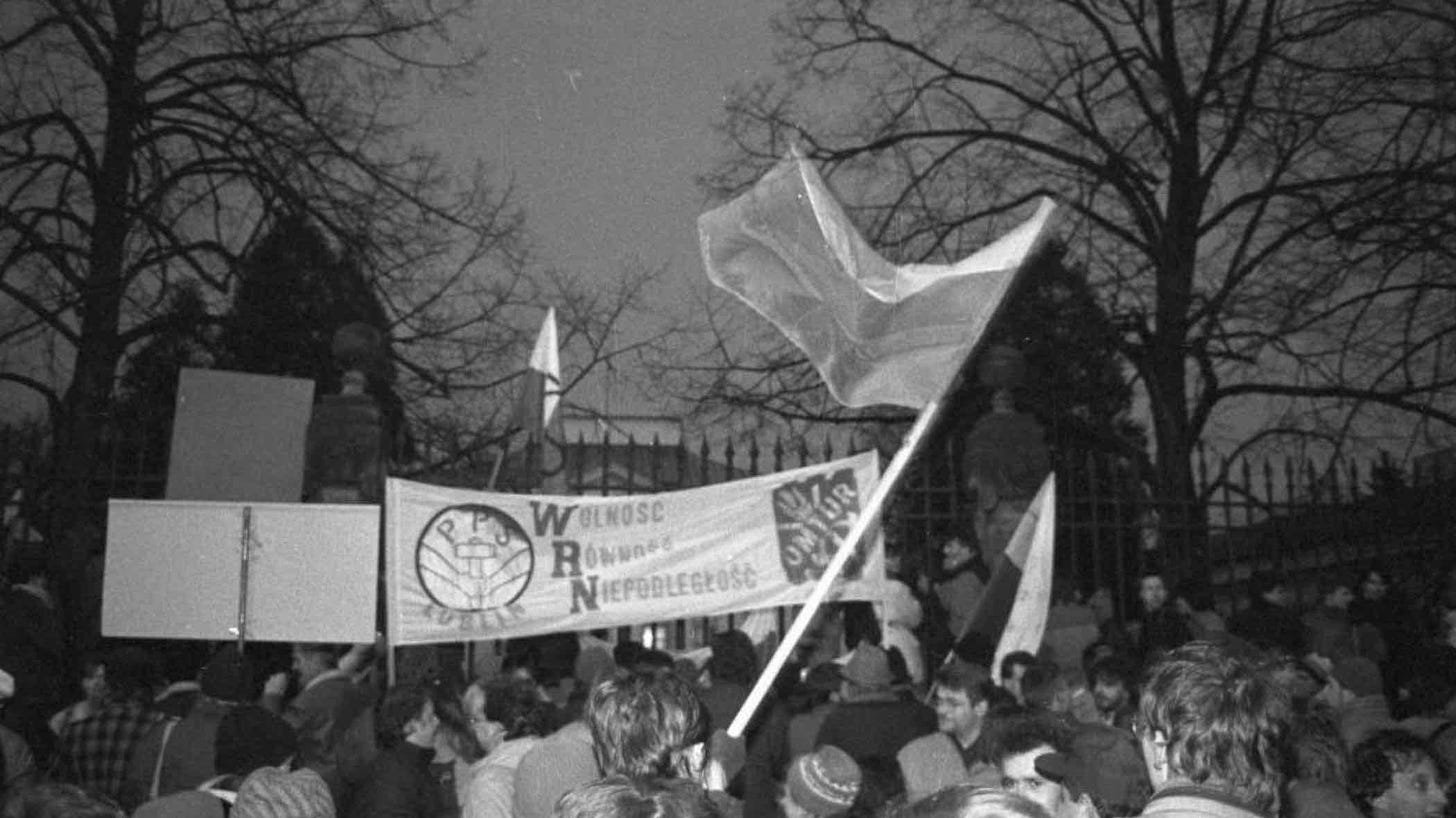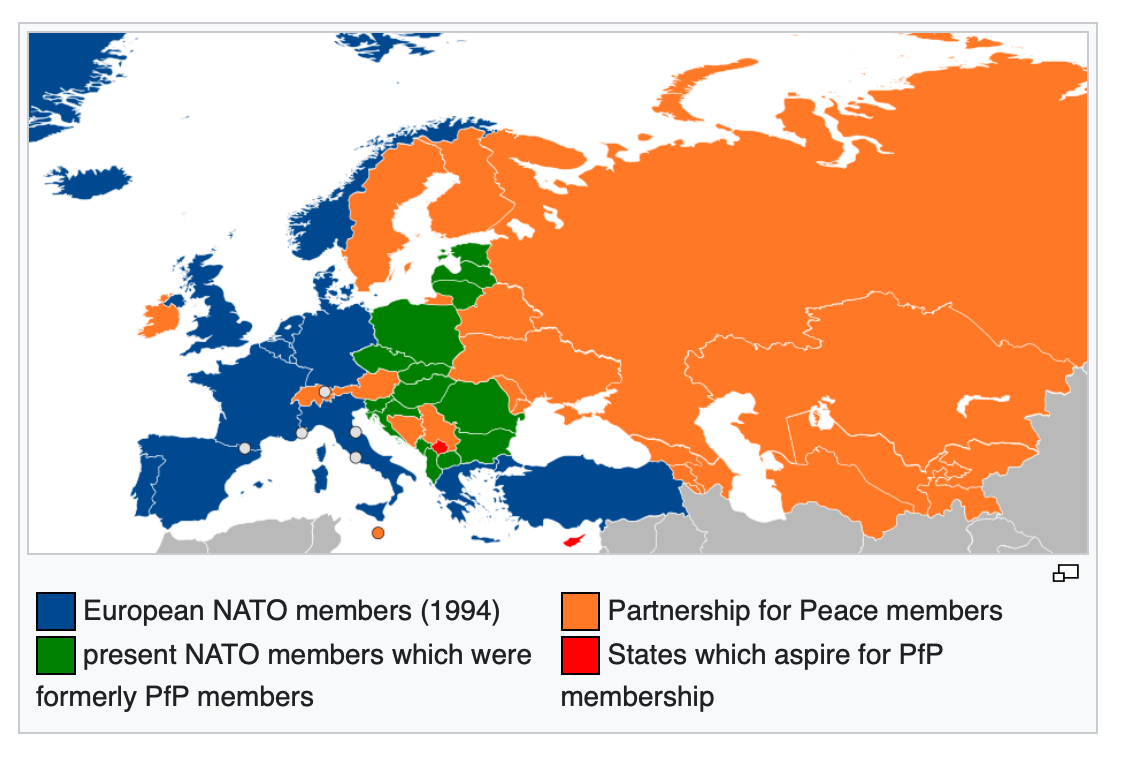About the NATO promise to Gorbachev...
Funny thing, I still love Roger Waters (as a musician)
My personal #1 disappointment of this war are the “progressive” intellectuals. Turns out, their anti-imperialism is not applicable to Eastern Europe.
Check the way Noam Chomsky is framing the “expanding NATO” narrative (excerpt from CounterPunch). He couldn’t care less if Poland “wants” to join NATO. In his eyes, we are just mindless pawns, dragged to NATO by Clinton, who “admitted” he did it solely for “domestic political reasons”.
The latter claim is particularly weird. Would any politician really admit such thing? In his next interview, he watered down this claim to a more palatable version: “some have speculated”. And again, not a zilch of explanation why Hungary and Czechia were admitted on the same day. Also for “domestic reasons”?
“He [GW Bush] brought in the Baltic states and others”, says Chomsky later on. What a cute wording! “Brought in”, like prisoners for questioning. It seems that nothing can stop Noam Chomsky from imagining Eastern Europe as savage brutes unable to make any decision on their own. He must feel The burden of Western Man particularly heavy!
OK, so let’s go back the the “promise”. Why do we see “East Germany” in this quote as if it was a separate country? Because at the time James Baker (not precisely GHW Bush himself) made this promise, East Germany still existed. Check the excellent summary “What Gorbachev heard?” for a detailed analysis.
As the famous quote goes, there are decades when nothing happens and months when decades happen. 1990 was full of such months.
In February 1990 when Gorbachev heard this promise, the Berlin Wall has already fallen, but the German Democratic Republic was still ruled by the communist party. Soviet army was still stationed in East Germany, just as in the other countries of the Warsaw Pact (which still seemed rock solid at the time).
The first free election in DDR/GDR was scheduled for next month and the outcome was uncertain at the time. As we know now, it resulted in a landslide victory of the anti-communist, pro-reunification “Alliance for Germany” but until the last day many Western “experts” expected the communists to win, because they claimed East Germans actually like their system (Jonathan Steele, who used to be “The Guardian”’s key expert on all things Eastern, wrote in 1975 a book sympathetic to the DDR).
By the end of 1990 East Germany was disbanded. By the end of 1991 so did Soviet Union.
Here comes the Question #1: is a promise made to the leader of a non-existing country regarding another non-existing country is still binding the countries that actually exist?
Will it be valid forever? In 2050? In 2150? In 2525? If a Grand Doge of the Venetian Republic made a promise to the Duke of Bamberg in, say, 1225 - is it still binding for contemporary Germany and Italy?
It gets even weirder with the Qustion #2. What Gorbachev promised in exchange? Don’t you find it odd that with all this talk about “what NATO promised”, hardly anyone talks about what Soviet Union promised?
Nothing? That would be really strange. As a leader of a crumbling empire, Gorbachev was not in position to make unilateral demands. The fact that we don’t talk about the reciprocal Soviet promise is yet another example of how good Russian propaganda is at controlling the narrative.
You can look for these promises yourselves, just google for Gorbachev’s speeches from 1988-1990. For instance, his speech at the United Nations, in particular the declaration that the central tenets of Soviet policy will be “freedom of choice” and “self-determination”.
It sounds like a cliché, but in the East we were listening with keen interest (that’s why I remember these promises). You must remember that while no country was ever forced to join NATO, it was exactly the opposite with the Soviet bloc.
No country volunteered. We were all “brought in” by force and kept against our will.
Budapest in 1956, no longer neutral. Photo: FORTEPAN / Nagy Gyula, CC BY SA 3.0
In 1956 Hungary under a reformist communist leader Imre Nagy tried to quit the Soviet bloc and declare neutrality. The Soviets responded by invading the country, killing thousands of civilians, abducting Imre Nagy, torturing him for 2 years and hanging him for the crime of neutrality.
In 1968 Czechoslovakia under a reformist communist leader Alexander Dubcek tried a more cautious approach: they explicitly DID NOT quit the Soviet bloc, just wanted to give socialism “a human face”: just some basic liberties, such as freedom of speech or small business ownership.
Soviets responded by - what else? - invading the country. Surprise, eh? But this time they were pretty lenient. Only 137 civilians were killed, by Russian standards it’s nothing. Dubcek was abducted and forced to resign, but his life was spared.
However, this was clear now that in the Soviet bloc we have no freedom to choose and no right for self determination. It was informally called the Brezhnev Doctrine.
Gorbachev’s speeches seemed to cancel it. We kept asking this question - to what extent? If we have the freedom of choice and self-determination, can we choose to quit the Soviet bloc and determine to join NATO? “You’re pushing your luck, little comrade!”.
Mikiahil and Raisa Gorbachev - pretending they don’t understand they are the punchline of the joke, screen from TVP Historia
In 1988 Gorbachev visited Poland. He spoke to the communist leaders and journalists, but also to some scholars connected with the democratic opposition. He kept hearing the same question: “is the Brezhnev doctrine still valid”? He heard it even during the evening entertainment, when the headliner turned out to be a very popular singer/comedian Andrzej Rosiewicz, whose song was basically the same question, but fomulated in a kind of pidgin Russian. Gorbachev held his brave face but as we know today, he was angry at his advisors who failed to prepare him to this level of candour. He gave some vague responses we took as the confirmation of the UN promise: “yes, you are sovereign, you can do what you please”. Communism in Poland was gone in a year.
In October 1989 Gorbachev’s spokesperson Gerasimov jokingly declared that from now on, there is only the Sinatra Doctrine - all countries can “do it their way”. This is the backdrop for the “NATO promises” of 1989-1991: they were made in response to Gorbachev’s promises that from now on, Soviet Union will quit this nasty habit of invading neighbouring countries.
I hope even Noam Chomsky would agree that this promise was violated a number of times since then by Soviet Union and Russia, and therefore the promise of “no NATO expansion” is nullified. Even if by some twisted logic Chomsky thinks the promise made to the leader of USSR regarding East Germany is somehow valid and binding for contemporary Russia and Ukraine.
Gorbachev himself violated his own promise as soon as in January 1991. At that time the Baltic states were not even formally independent, they belonged to the Soviet Union. However, their local Supreme Soviets declared unilateral independence in early/mid 1990. Initially it was not recognised by any other country, not even the USA and resulted in the economical blocade by the Soviet Union in hope that once those pesky Balts get really hungry and cold during the winter, they will come back to Mother Russia.
It didn’t happen, so in January 1991 the Soviet Union reacted… how? Well, take three guesses.
This time they killed 13 unarmed civilians. Please notice that that the Lithuanian population was 10 times smaller than Czechoslovakian, so it’s not like they became more humanitarian. They just invaded a really small country this time.
The massacre in Vilnius resulted in mass demonstrations in support of Lithuania in all the post-Soviet countries, including Warsaw. I’m a tiny detail in the photograph below!
Pro-Lithuanian demonstration in Warsaw. Photo: PAP/ Cezary Słonimski
It was a lesson to all of us (Poland, Romania, Hungary etc.) that Soviet/Russian promises are worthless. They promise they let you go your own way, they promise to respect your choice, they might be witty and charming, quoting Frank Sinatra… and they will still invade you and kill your civilians, because this is how they roll, this is how they are, this is the Russian way since Ivan the Terrible.
It’s no wonder then that the post-Soviet countries wanted to apply to NATO as soon as possible. The support was nearly unanimous. When Lech Walesa made an ill-advised remark that perhaps instead of applying to NATO and European Community, the post-Soviet countries should create their own alliances, he was criticised by everyone, including his most ardent supporters.
In may 1992, Poland, Czechia and Hungary adopted a joint declaration that this is our common goal. NATO wasn’t that eager to let us in, they wanted to know Russia is OK with that.
During the visit Boris Yeltsin to Warsaw in 1993, the most frequently asked question he heard was: “Will you invade us if we try to join NATO?”. OK, maybe not with this exact wording, but that was really the only thing we wanted from Russia. The best reward Russia can offer to the countries in the Russian sphere of influence is the permission to leave the Russian sphere of influence. No gas, no oil, no gold can compensate for the lack of liberty.
Lech Wałęsa and Boris Yeltsin co-signed a joint declaration that Russia “understands” Polish desire to join NATO. This of course can be read in two ways - “understands and accepts” or “understands and rejects”. Russia immediately published a statement that only the latter version is correct and Russian propaganda spread a rumour that Yeltsin was not in his best shape when signing this document, because Wałęsa was a more experienced drinker who was better at holding his liquor (I doubt it for a number of reasons).
In response NATO created a program called “Partnership For Peace”, where all the post-Soviet countries were invited - including Russia. For some countries it turned out to be a fast-track to join NATO, other are just happy with their role as mere observers.
The program is aimed to build mutual trust. If you participate, you can say “dude, what is this tank division doing so close to my border?”, and you can send your inspectors to check it for yourself.
Russia joined on June 22nd, 1994 (a symbolic date: anniversary of the German-Soviet war).
Please let me repeat: Russia joined the NATO-led program. When did they quit? Never. Technically they are still members, although they froze all their activities.
Parthership for Peace (Wikipedia snippet)
Now, here’s a special paragraph dedicated to all those who ask rhetorical questions such as “would USA accept it if Mexico/Canada joined Russia/China and have their military bases on the US border”. To make it relevant, we would also have to imagine that Russia/China has an equivalent of the Partnership For Peace program allowing the US liaison officers to check what’s going on in these bases and what is their real purpose. If this was the case… why not?
If anyone reading this has access to Noam Chomsky, please tell him that if Russia really feeels “threatened” by NATO, they can simply use Partnership For Peace to check what’s going on in any NATO base.
But let’s face it. Gorbachev didn’t invade Lithuania in January 1991 because he felt threatened by Lithuania. Brezhnev didn’t invade Czechoslovakia in August 1968 because he felt threatened by Czechoslovakia. Khrushchev didn’t invade Hungary because he felt threatened by Hungary.
They invade you because they can. This is why despite all our differences in Poland and neighbouring countires, we are more or less united in the goal of making sure they no longer can.









when you are anti-imperial for your whole life you see the world only from an imperial perspective
Just a general comment FWIW: A commenter named Formosa appears to have interest in raising all kinds of difficult questions and conundra; Formosa argues valiantly for themselves and the legitimacy of their concerns. Suggest, if Formosa could take a rest and a breather, it could benefit both Formosa and everyone else in this forum, as well.